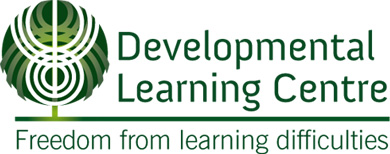Over the school holiday period most parents of children with learning difficulties delight in a significant decrease in anxiety levels in their children. Once school begins again however it does not take long for stress levels to rise. Getting ready for school in the morning can be an ordeal which affects the whole family. Strategies such as reluctance to get out of bed, sore tummies, frequent forgetfulness of normal daily routines and sometimes full blown meltdowns are common.
What is the reason for such behaviour?
Most children with learning difficulties simply do not have the basic learning “equipment” needed to perform the academic tasks. Can you imagine how stressed you would feel to arrive at a job where you were required to perform tasks day in and day out without the necessary tools?
Most teachers pour time and expertise into developing a variety of teaching strategies and special programmes for these children, but for little or no lasting result because these children do not have the reception gear to receive and retain the learning.
What can I do to help my child?
What your child really needs is an in-depth assessment of their learning “ equipment”. You can start by taking your child for vision and hearing checks. If these tests are all normal then it is time to look more deeply. Your child’s vision may be normal but they may not be processing what they see accurately. Reversals of letters and numbers may persist beyond the usual age (6-7) because they have an underlying spatial orientation immaturity. Your child’s hearing may be normal but they may not be processing what they hear accurately because they have an underlying auditory processing difficulty. Poor auditory discrimination skills will result in the child frequently confusing similar sounding words, difficulty understanding and following instructions and in repetitive spelling mistakes because they cannot perceive the differences between similar sounds.
These are not issues which can be addressed by the teacher. These are underlying developmental immaturities which must be addressed by Developmental Movement Therapy or Auditory Retraining Therapy to rebuild the child’s learning equipment. Once this has been done your child is then free to grow and learn to their full potential.
Developmental Movement Therapy
Can you imagine trying to build a house without putting in a firm foundation? Trying to remediate a child with dyslexia who simply does not have the equipment (wiring) and foundation (mature neurological system, good spatial awareness, listening skills and visual perception) for their “house of learning” is very difficult.
At the Developmental Learning Centre, we believe our first task is to address the underlying immaturities and develop a good neurological foundation. To do this we use Developmental Movement Therapy (Extra LessonTM). Central to this therapy is the idea that learning and behavioural difficulties are a result of developmental issues in a child’s early years. This means they may not have received some of the sensory input they needed that form the basis of our learning processes. By repeating early childhood movement patterns, we are able to ‘rewire’ brain and rebuild the pathways and foundation of learning.
Click here to learn more about Developmental Movement Therapy and the amazing results it can have by reading our testimonials here.
Auditory Retraining Therapy
If your child has dyslexia, it may also be a result of an auditory processing difficulty or disorder, and they will be likely to benefit from Auditory Retraining Therapy. This therapy uses filtered music to mature the pathways in the brain needed to recognise different sounds when reading and spelling and to process spoken language quickly and efficiently. Music therapy is also used to treat children who are easily overwhelmed, hypersensitive and anxious, and have difficulty regulating their emotions.
It is relatively new and is not used by audiologists and speech and language therapist in NZ as a rule. In fact your GP, your audiologist and your speech and language therapist may not have heard of it. However it has been in existence for approximately 40 years. It was developed by a French ear nose and throat specialist, Dr Alfred Tomatis and is incredibly effective for children with auditory dyslexia.
You can learn more about Auditory Retraining Therapy and the amazing results it can have by reading our testimonials here.
Is your child struggling at school?
Call 0800 543 399 or Request a free call back with the Developmental Learning Centre to understand if how your child could benefit from our natural and holistic therapies.
